My Dog Eats Once a Day – Is That Normal?
If your dog only eats once per day, you may be worried that your pup isn’t getting the nutrition they need—or, worse, that they may be ill. Don’t stress. This problem is more common than you might think, and there are easy solutions available.
As a dog expert, I get asked about this all of the time.
The fact is that most veterinarians recommend dogs consume two meals per day, spaced approximately 12 hours apart. Puppies should eat even more frequently, aiming for three feedings per day.
In this article I will explain
- How often a dog should eat
- Why once a day eating can sometimes be a problem
- What to do when your dog refusese to eat
- Should you leave unfinished dry dog food out?
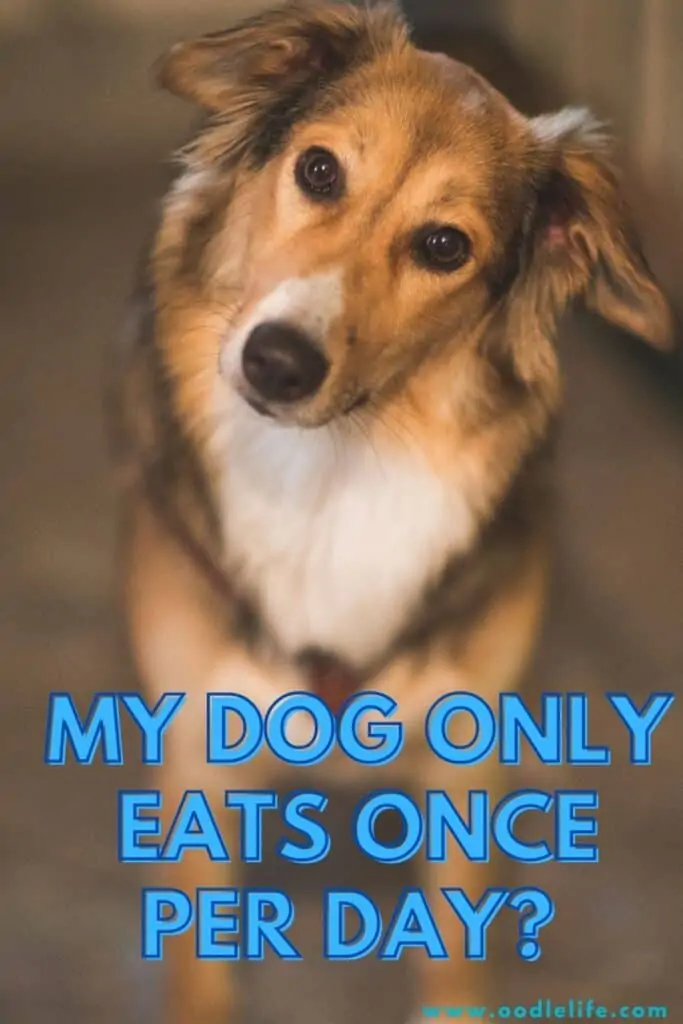
Is your dog not meeting those requirements? We’ve done the research and come up with actionable tips to help you improve your pup’s eating regimen. Here’s what to know about dog feeding times and how you can optimize your dog’s eating schedule.
How Often Should a Dog Eat In a Day?
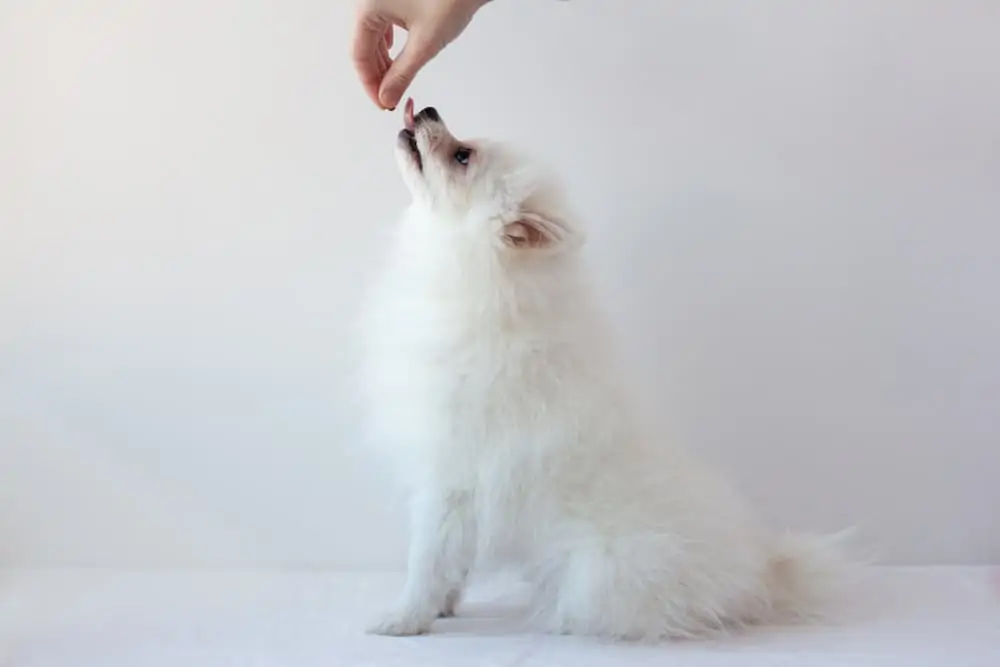
First, let’s preface all of this by saying that the twice-a-day rule is general. The “perfect” amount of feeding times in a day depends on diverse factors, like the dog’s breed, size, weight, physical health, and age.
A veterinarian can provide precise guidelines regarding how frequently your furry friend should eat. That said, it’s good to know the general rules of thumb when it comes to dog eating routines. Here’s what the experts recommend, according to our research.
Adult Dogs
An adult large sized dog should eat at least two square meals per day. These meals should consist of high-quality dog food with the appropriate calories and nutrients to maintain energy levels and health.
Puppies
The average puppy should eat three to four times per day. The food should consist of a puppy-friendly formula with the vitamins and minerals pups need to grow strong. Note that puppies generally relieve themselves within 15 minutes of eating, so be prepared to go out!
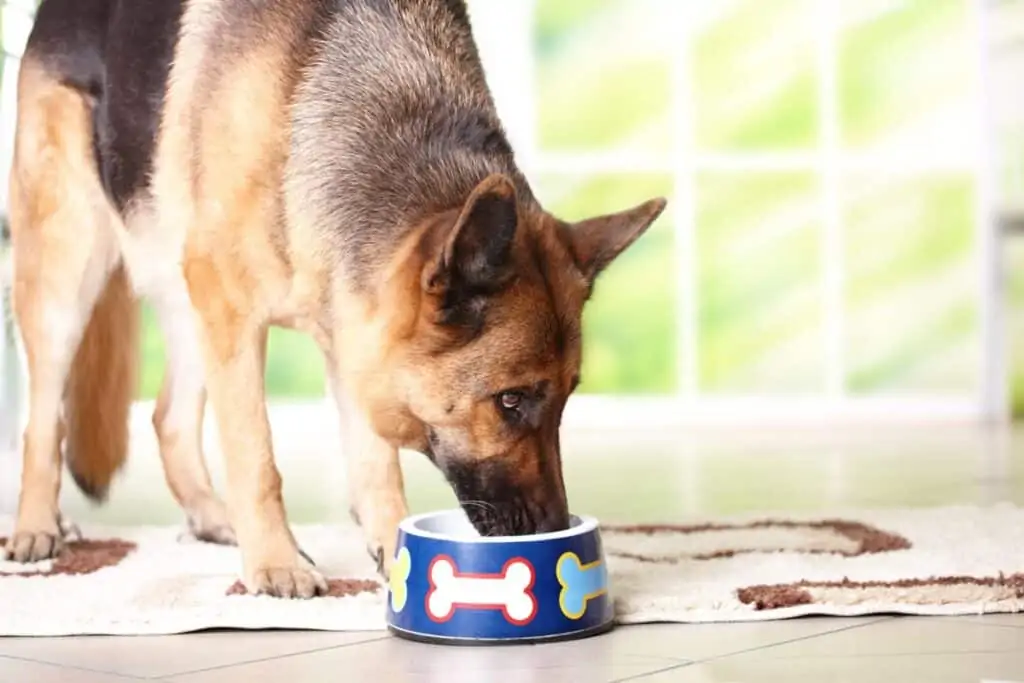
Why a Single Meal Per Day Can Be a Problem
So, is eating just one meal per day a problem? It can be. For puppies, a single feeding won’t be enough to maintain energy levels and healthy growth. They need more fuel than an adult dog to nurture their developing bodies.
Meanwhile, adult dogs may become more anxious or irritable if they’re only fed once per day. They may get aggressive and be more prone to behavioral issues, like chewing on furniture or acting violently towards people or animals.
Further, note that adult dogs can empty their stomachs within eight hours. After this point, their stomach will send a hunger trigger to the brain. This can cause the dog to overeat when they get food, resulting in health issues like bloating and gastrointestinal problems.
What Should You Do If Your Dog Eats Only Once a Day?
So, your dog only eats once a day—and you think that’s a problem. But what can you do about it? If you’ve tried feeding your pup a second time per day and they don’t seem interested, you might assume this is a lost cause. It’s not, we promise. Follow these tips to help.
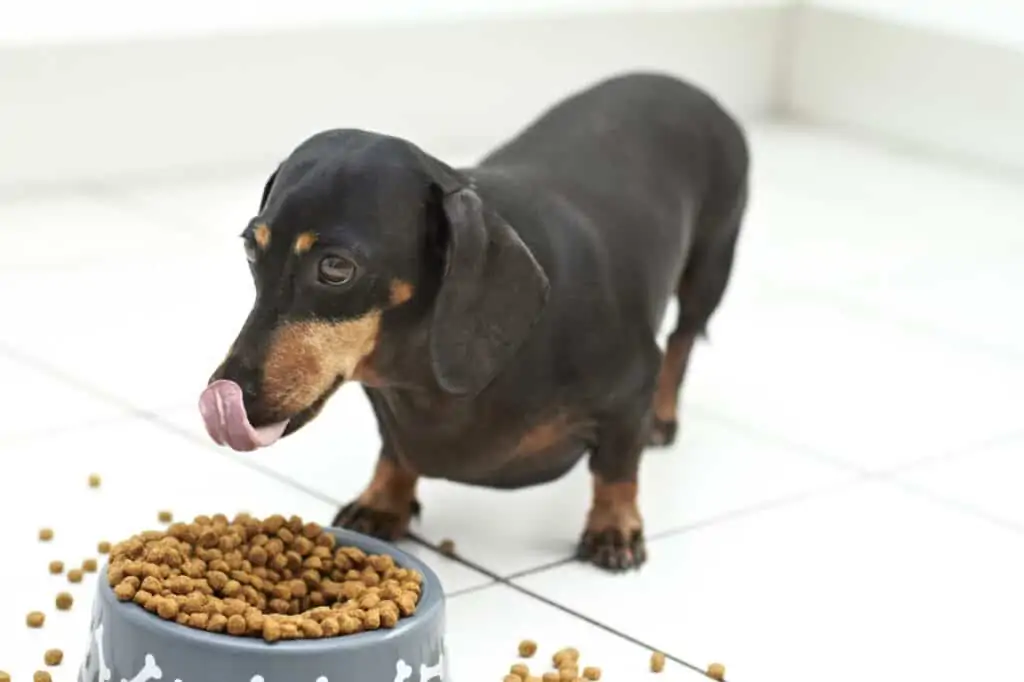
Rule Out Health Problems
Before you do anything else, take your four-legged family member to the veterinarian for a checkup. You want to rule out possible health issues that could be causing a lack of appetite. Possible causes of lack of appetite include infection, intestinal blockage, pancreatitis, or cancer.
Don’t worry: Odds are your dog is perfectly healthy! It’s simply better to double-check before proceeding. Further, your veterinarian will be able to offer helpful advice about changing your dog’s feeding routine, such as recommending an appropriate kibble. So, make that appointment.
Adjust Your Dog’s Feeding Times
If your dog insists on a single meal per day, it may be time to rethink your feeding times. If they are currently only eating once daily, add another high-quality meal. However, make sure to leave 12 hours between meal times. Otherwise, your dog won’t have much appetite.
Further, time your meal appropriately. You might try feeding your dog after their walk, for example. They’ll likely be hungry after getting some exercise and eager to eat. You can also try feeding them after a rousing round of playing a game like fetch.
Limit Feeding Time
It’s not just when your dog eats that matters. The amount of time you give them to chow down is another factor. Some dog owners like to leave kibble out for their dogs all day. However, this impedes portion control efforts (not to mention, leaving dry food out attracts pests like rats).
Carve out precise time frames when your dog should be eating and give them a set amount of time for their meal. Keep your eye on the clock and cap their mealtime to about 30 minutes. After this point, cut them off and throw out what isn’t eaten.
Improve Your Pup’s Portion Control
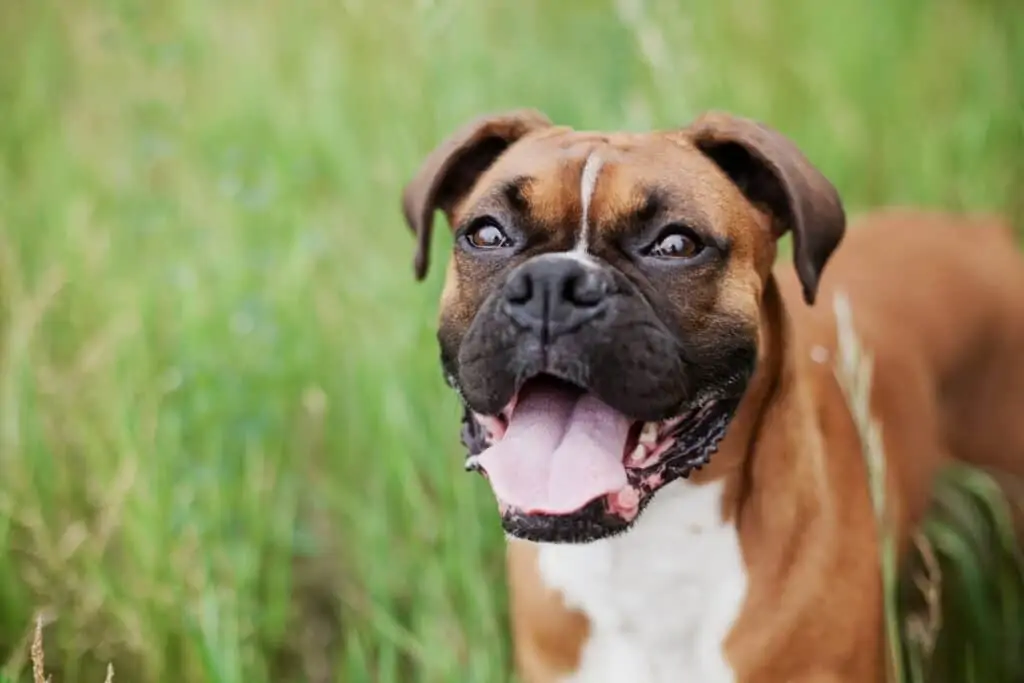
Limiting mealtime will also make it easier to control your dog’s portions. If your dog eats one giant meal once per day, they may not want more later. Limiting their portion sizes will allow them to distribute their eating across a larger window of time.
Just how much should your dog be eating? It depends. Start by asking your vet what your pup’s ideal weight is and determining how far off they are. You can then calculate how much they should eat based on their current weight and whether they need to lose or gain pounds.
Change Your Dog’s Food
Sometimes a dog’s lack of interest in food is down to something as simple as the type of food they’re getting. If your dog lacks appetite, try changing up its chow. Look for foods with natural, human-grade ingredients, and always read the nutrition label.
The dog food market has changed significantly in the past years, as pet owners turn to organic goods sans contaminants. People are starting to embrace the idea that their pets deserve just as high-quality food as their humans. As a result, there are many great options.
Rethink Your Approach to Treats
Here’s another simple reason why your dog may not have an appetite for a second meal at day’s end: You’re overfeeding them treats! Your pup undoubtedly loves treats, and they can be a great help for training. However, treats shouldn’t replace meals.
Treats should never make up more than 5 to 10% of your dog’s everyday diet. If you like to use treats frequently, for example, for training, you can minimize this by breaking them into smaller pieces. This still allows you to provide a reward without overloading your pup with goodies.
Communicate Changes to Your Dog’s Routine to Others
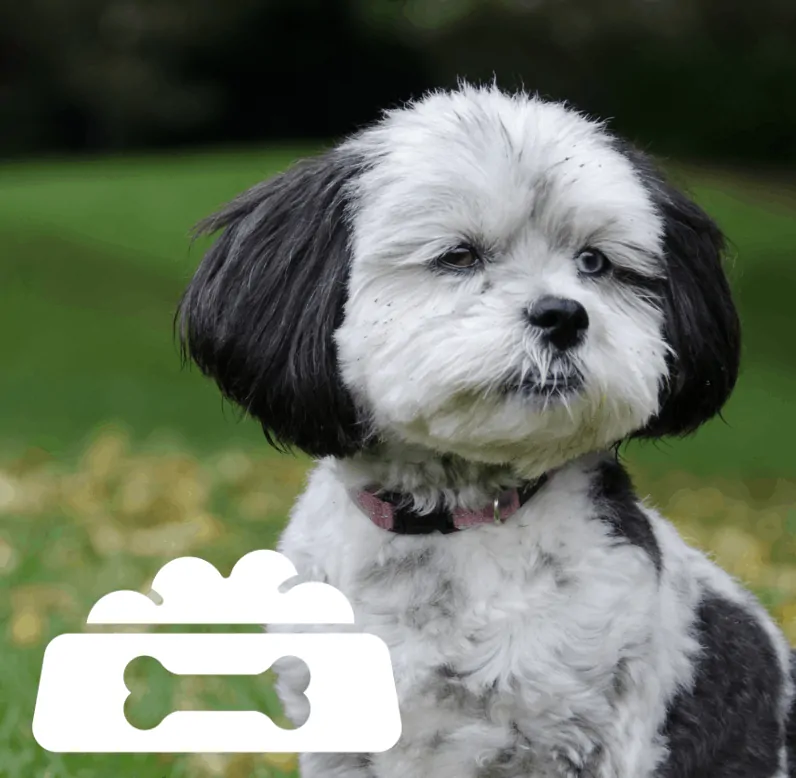
If you make any changes to your dog’s diet, always verify them with your veterinarian. Further, make sure to communicate any adjustments to other people who care for your dog, including family members, pet sitters, boarding kennel staff, and groomers.
Why does this matter? You don’t want another person’s well-intentioned actions to interfere with your efforts to get your dog on a different feeding schedule. For example, if your pet sitter typically provides loads of treats during the day, this can ruin your dog’s appetite at night.
The Final Word: My Dog Eats Once a Day. Is This a Problem?
If your dog is only eating once per day, you may have cause for concern. This isn’t an ideal feeding schedule and can cause issues, such as behavioral problems like increased aggression. Ideally, your adult dog will eat twice per day (while a puppy will eat three to four times daily).
The great news is that it’s possible to adjust your pup’s eating routine. The tips above cover some of your options. From changing when you feed your dog to limiting treat intake during the day, there are many small and straightforward steps you can take to make a difference.
Whatever tactics you try, make sure to run them by your veterinarian first. An animal health professional can also rule out medical reasons for your dog’s unusual eating habits. Taking this holistic approach will ensure you are doing all you can to safeguard your canine’s wellbeing.